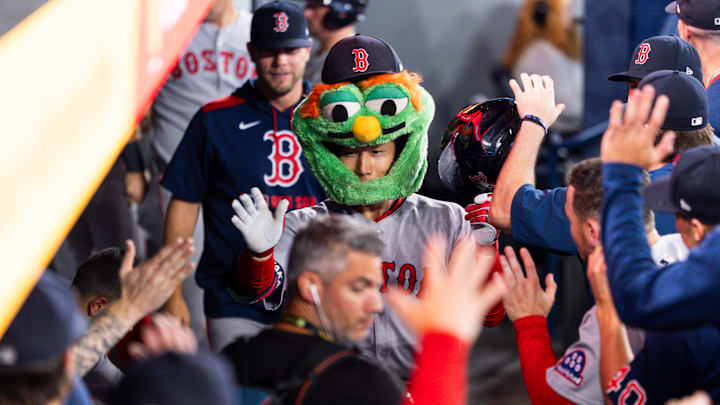How much would you pay for a 28-year-old Japanese star who owns a career a .327/.421/.539 slash line and 133 home runs in NPB?
No, I'm not talking about Muneteaka Murakami or Kazuma Okamoto, the two current international free-agent stars who are the talk of the town. Instead, that's the résumé Masataka Yoshida brought with him to the states before signing a five-year, $90 million deal with the Boston Red Sox in free agency.
In his three years since coming to Boston, Yoshida hasn't lived up to the big expectations set out for him. The outfielder-turned-designated-hitter has a .282/.337/.425 batting line in the major leagues, good for a 109 wRC+. By most metrics, he's been a replacement-level player throughout his career.
Though that's not an indictment in and of itself, the fact that Yoshida is rocking an $18.6 million salary in 2026-27 that ranks third on the team is a problem. It's why he's been in trade rumors seemingly since the moment he signed with the Red Sox.
It's also why he now finds himself back in the rumor mill this offseason.
Masataka Yoshida remains an obvious but hard-to-move trade candidate for Red Sox
Yoshida's value is really hard to gauge at this point due to his contract and regressing abilities on defense. He can hit big-league pitching quite well, but injuries sapped his effectiveness even on offense this past season.
The veteran was disappointing in 2025, slashing .266/.307/.388 (88 wRC+) with four home runs in 55 games. That's a steep drop-off from his prior production (116 wRC+ in 2024), though as an injury-prone 32-year-old, he may already be out of his prime.
There are obvious reasons for the front office to want to trade him, even beyond payroll relief. He won't play the outfield again amidst a serious logjam, and he clogs up the DH spot as a contact-first hitter with little to offer in the way of meaningful power. Freeing up his roster spot could enable the Red Sox's braintrust to pursue a bat-first slugger (Pete Alonso, Kyle Schwarber, etc.) who may have to move to DH in the next couple of years.
Of course, moving Yoshida is easier said than done. All of those reasons to want him out are reasons other teams won't want to bring him in. Adding injury concerns on top of his bloated contract only makes whatever value he has even murkier.
And yet, this is a guy who can hit major-league pitching. A .762 OPS and 109 wRC+ are nothing to scoff at, and those marks were .775 and 112, respectively, prior to his shoulder surgery last offseason.
With enough financial compensation to offset some risk, another team may find themselves willing to take a chance on Yoshida's bat-to-ball skills this offseason. At least, that's what the Red Sox are hoping.
